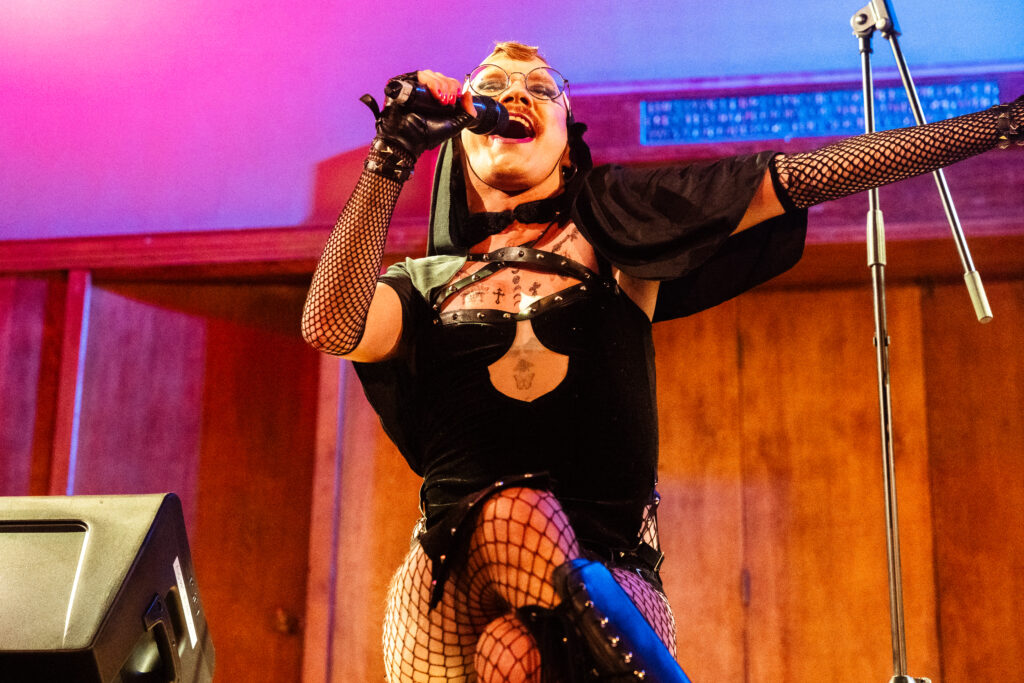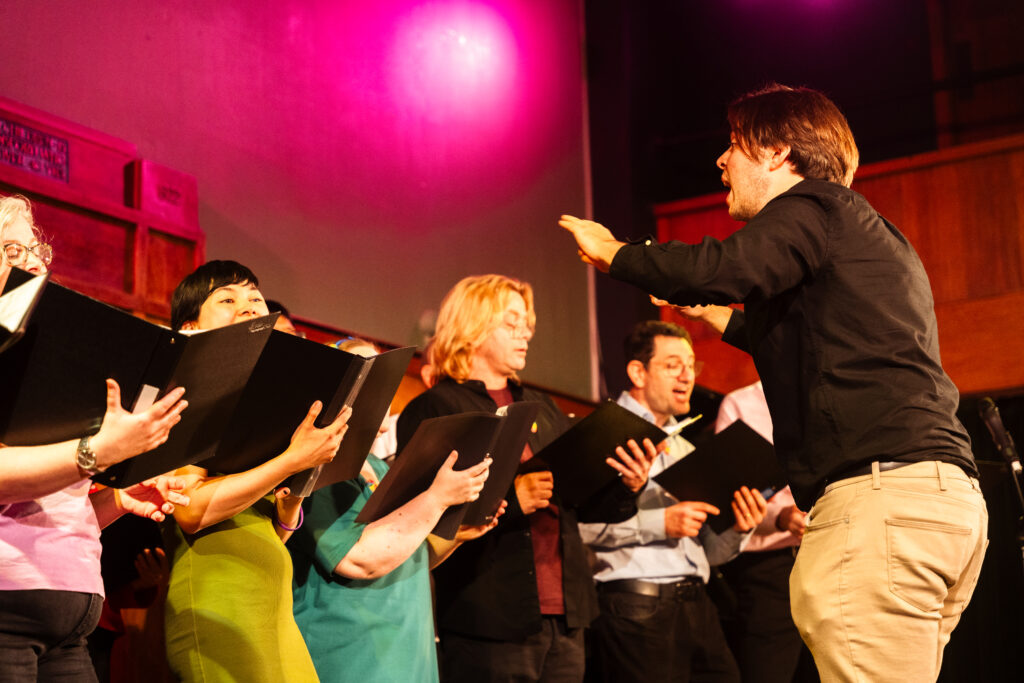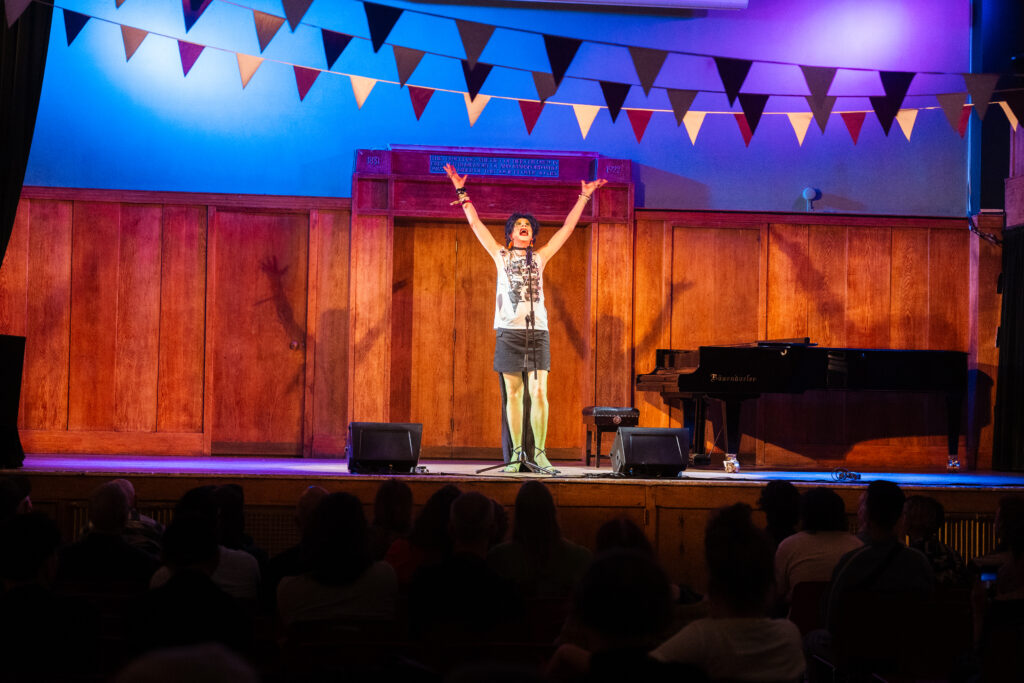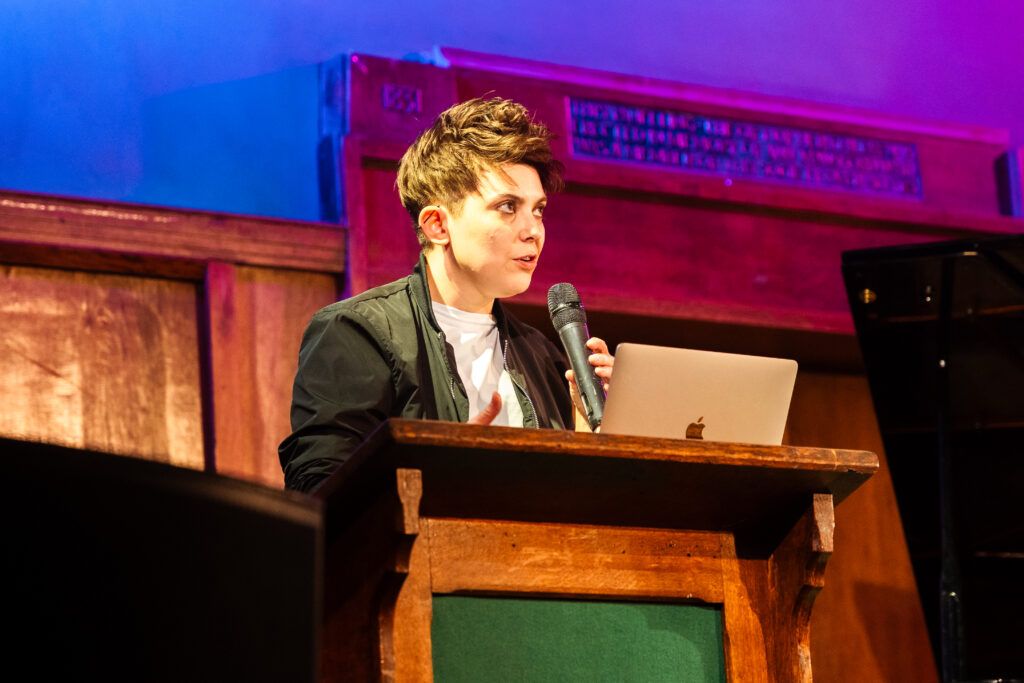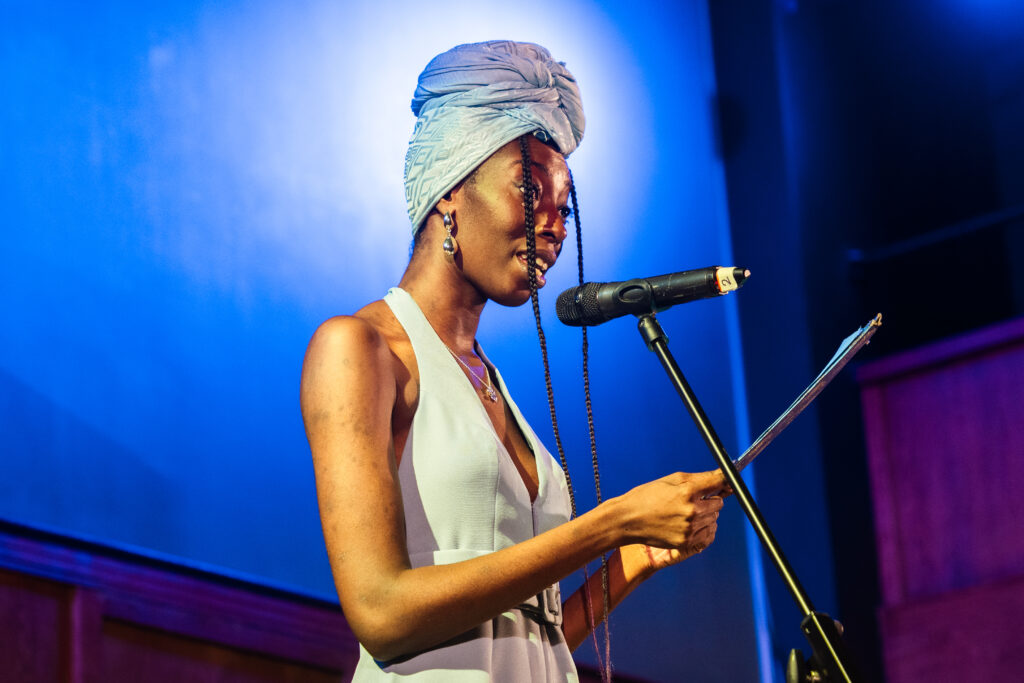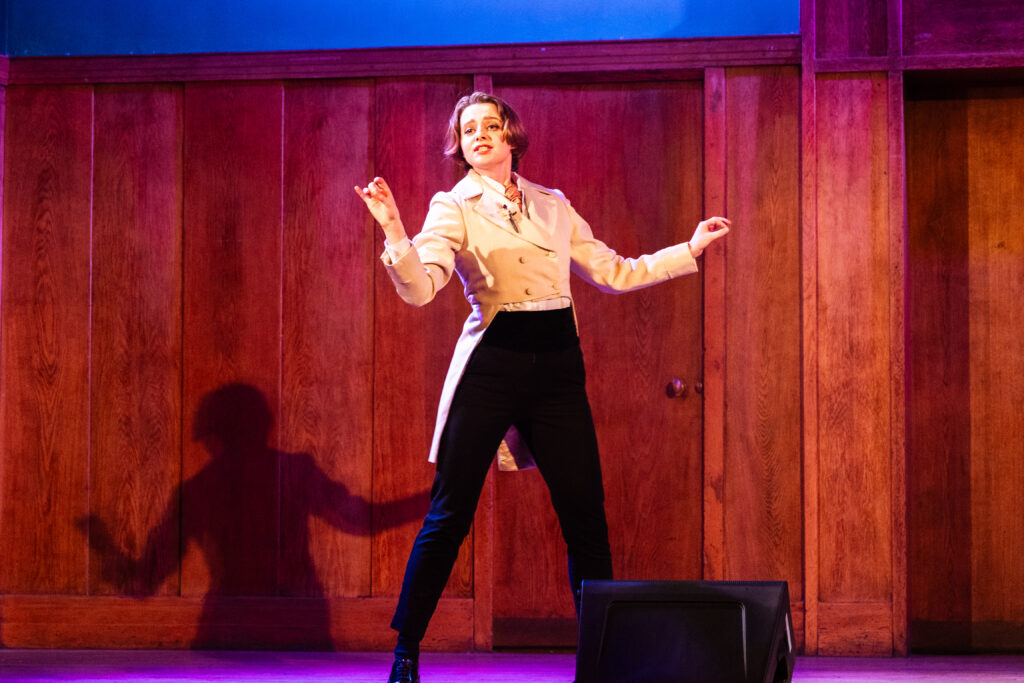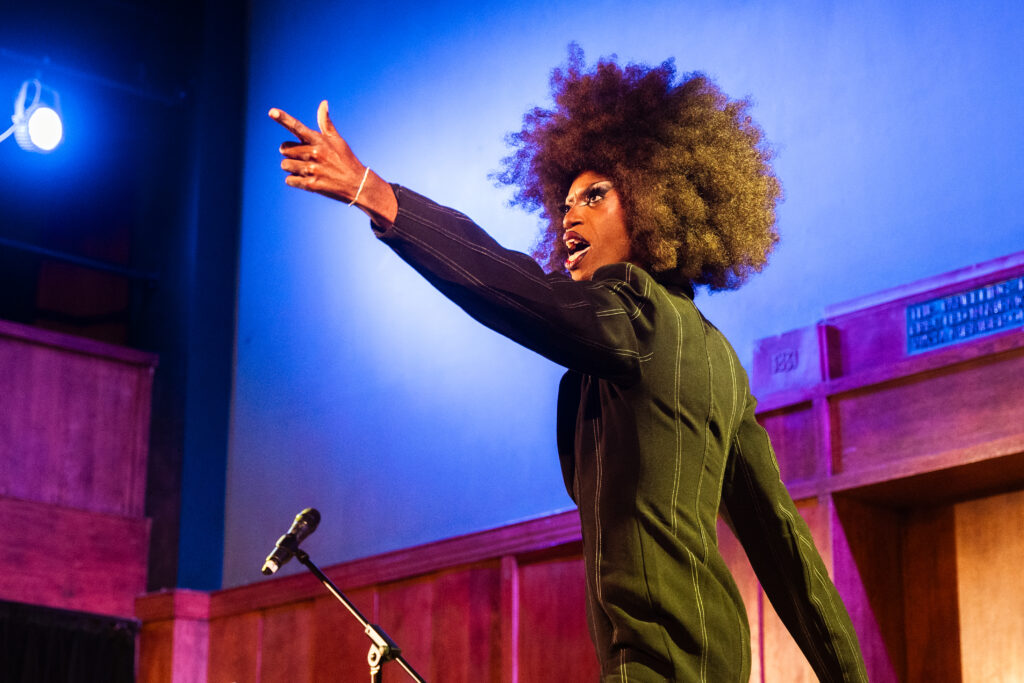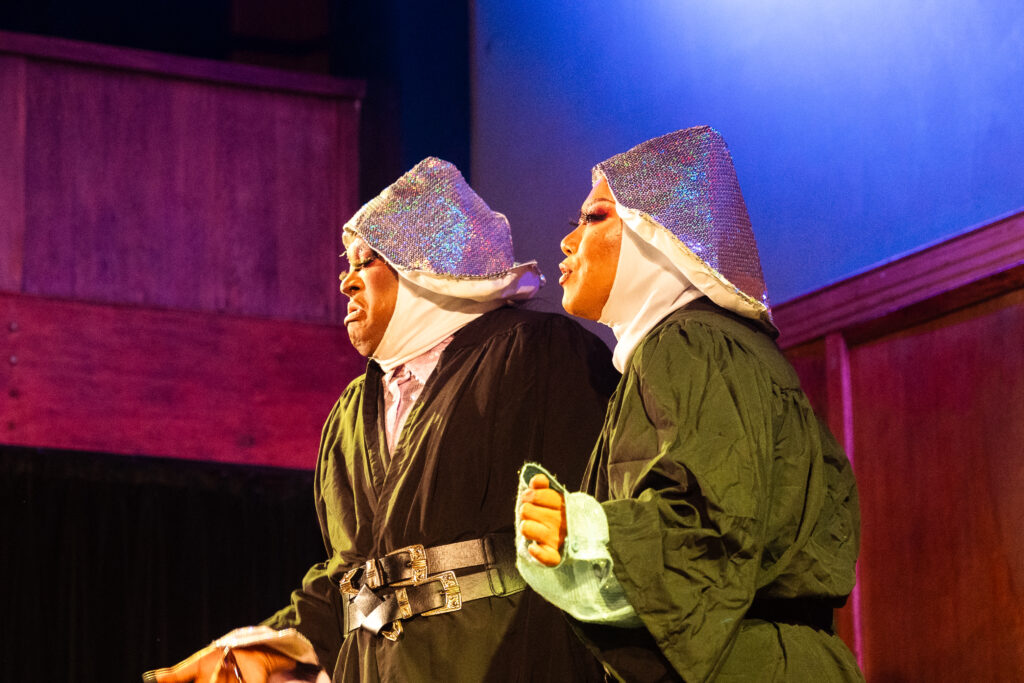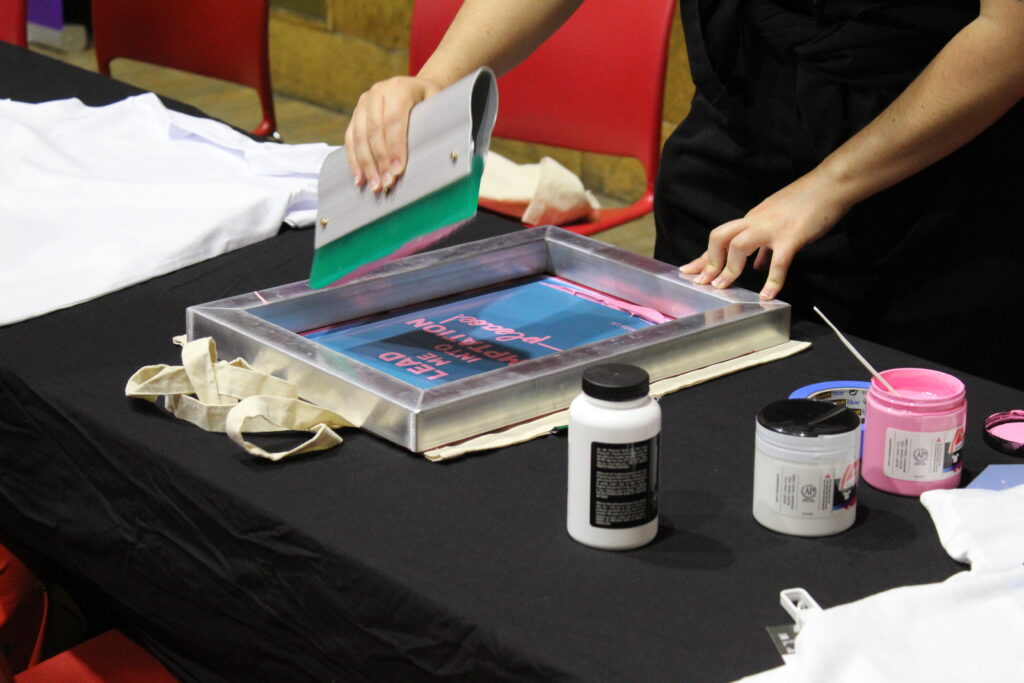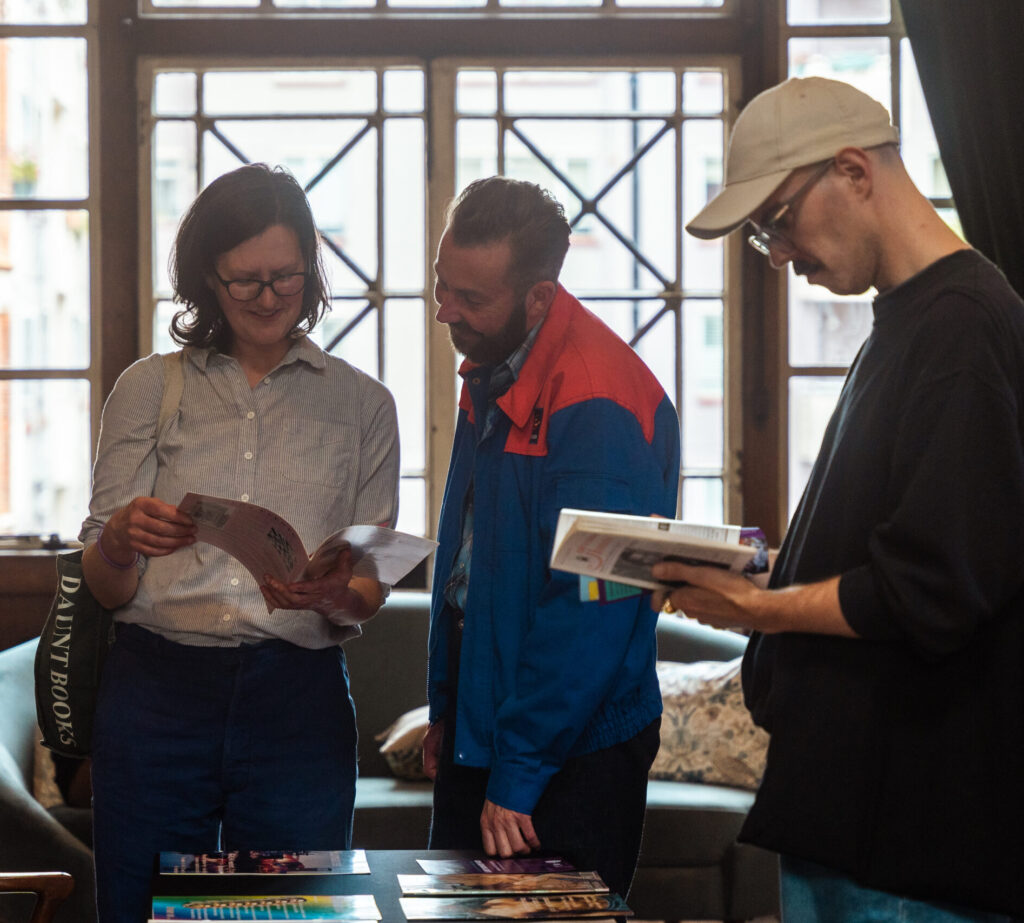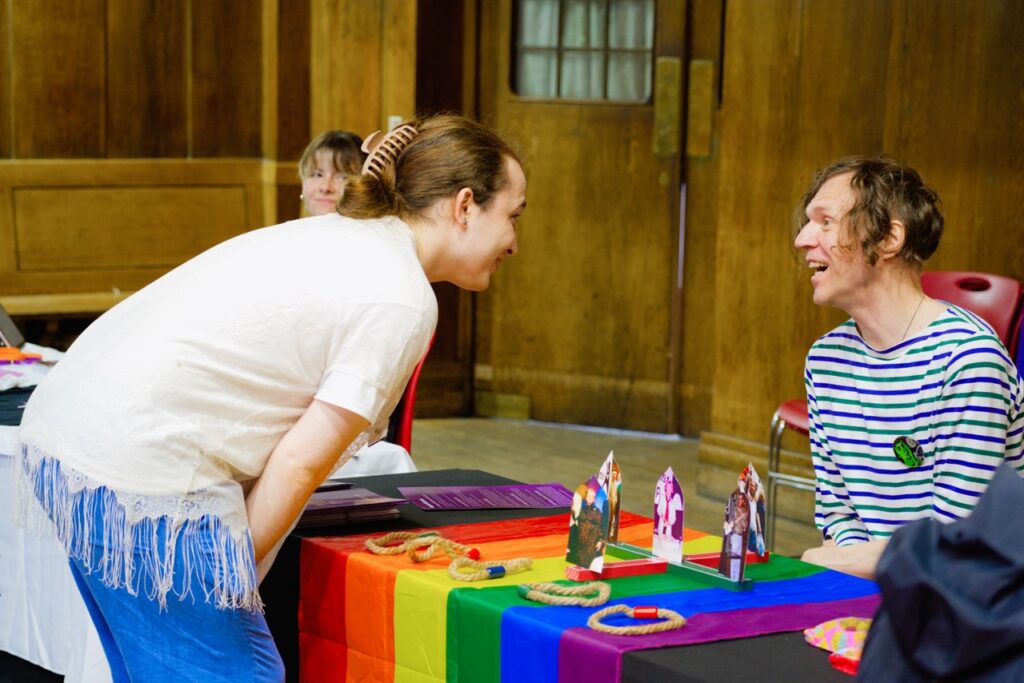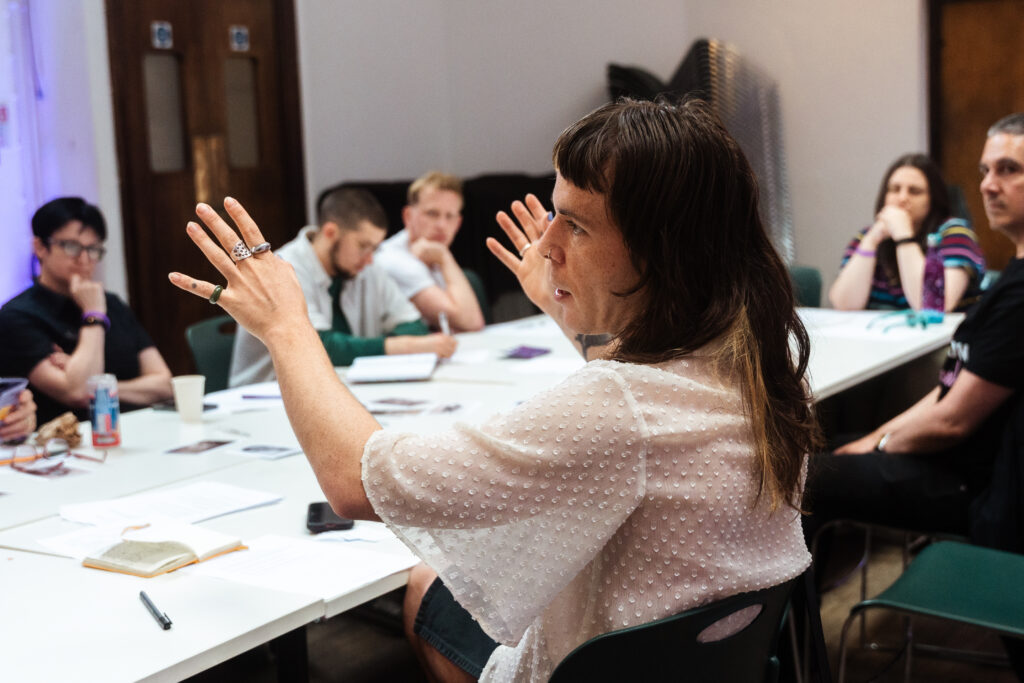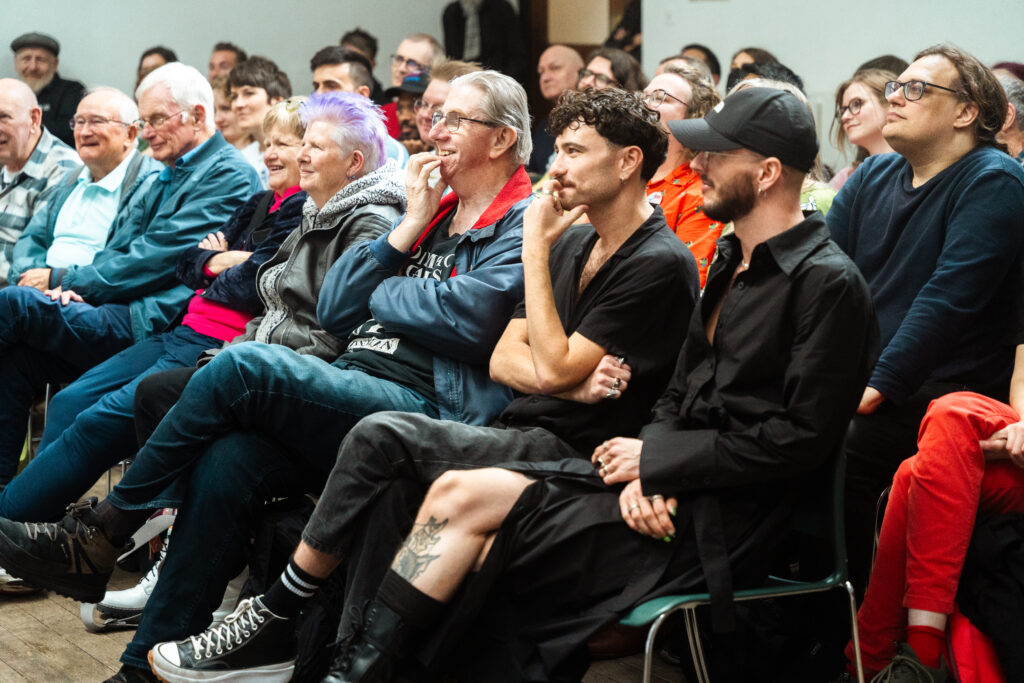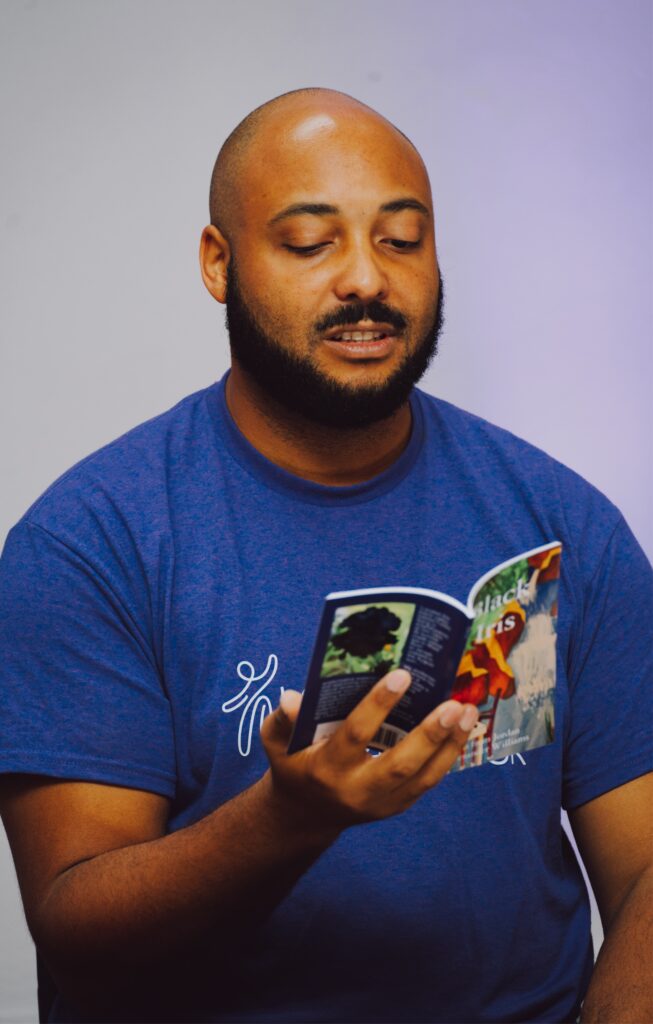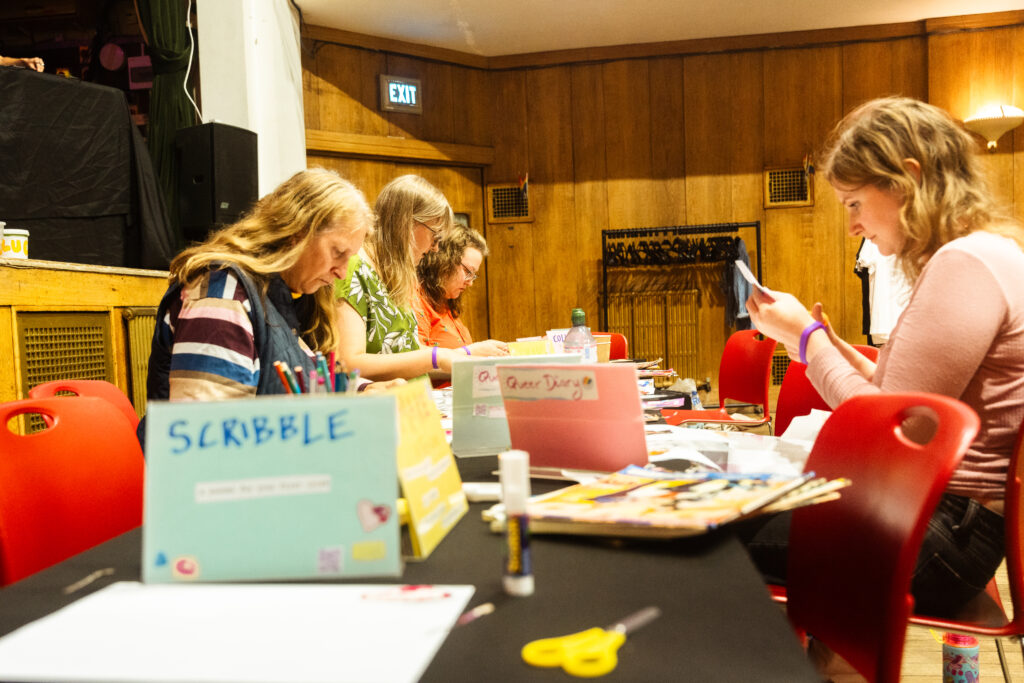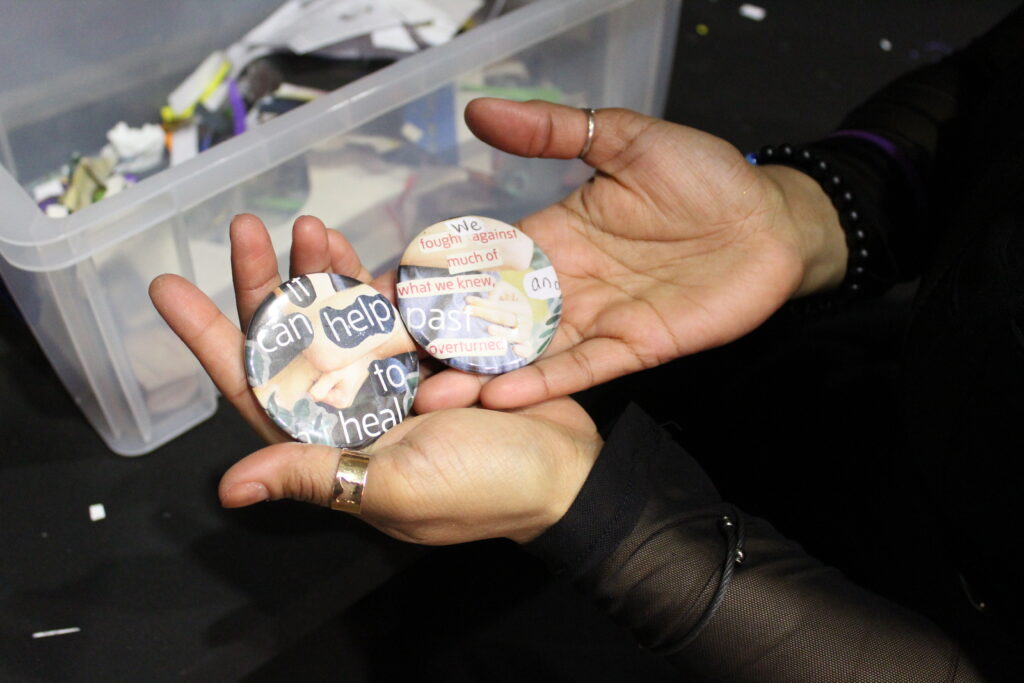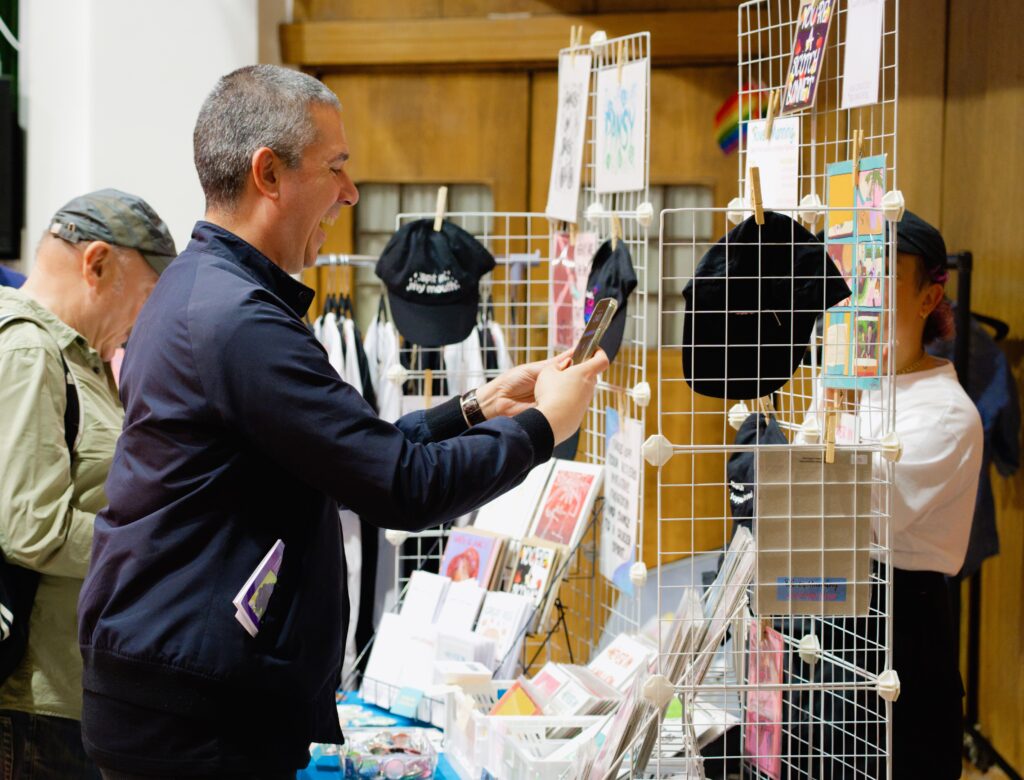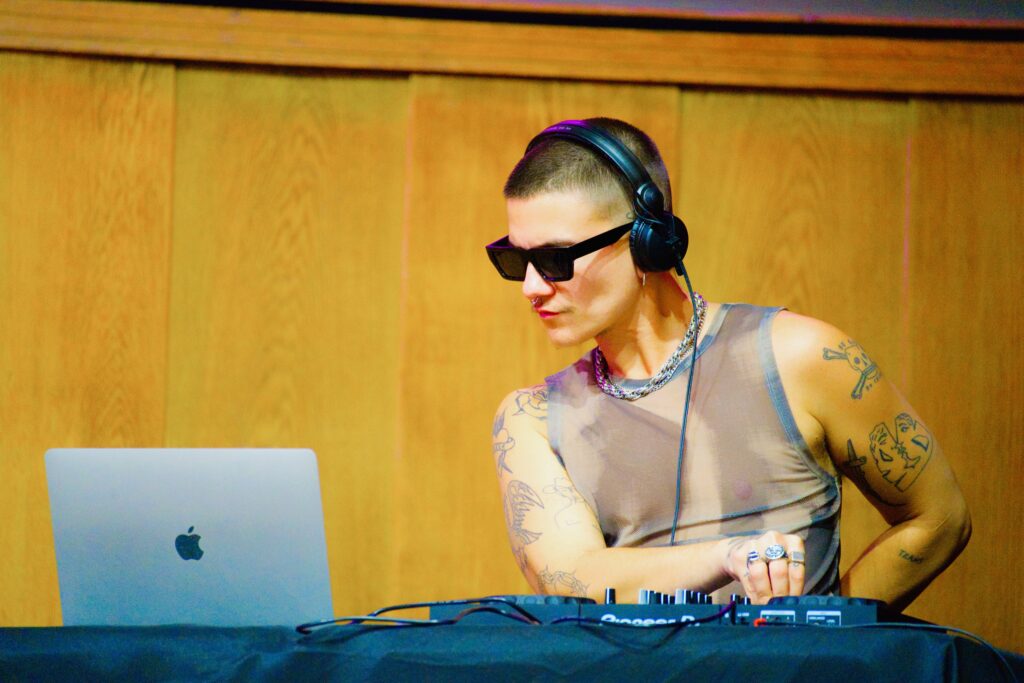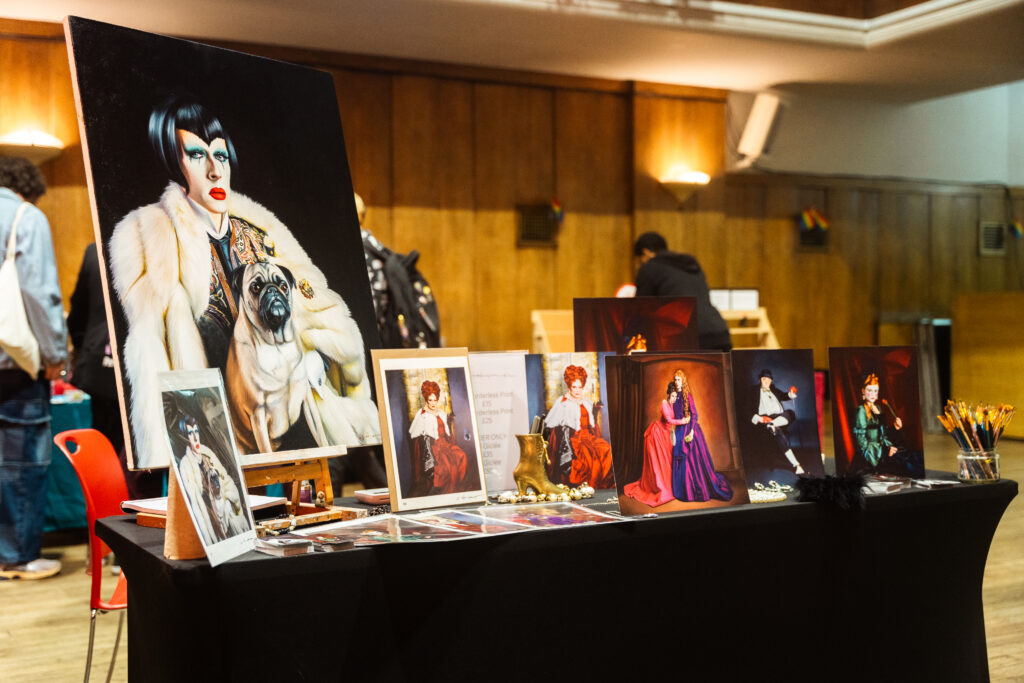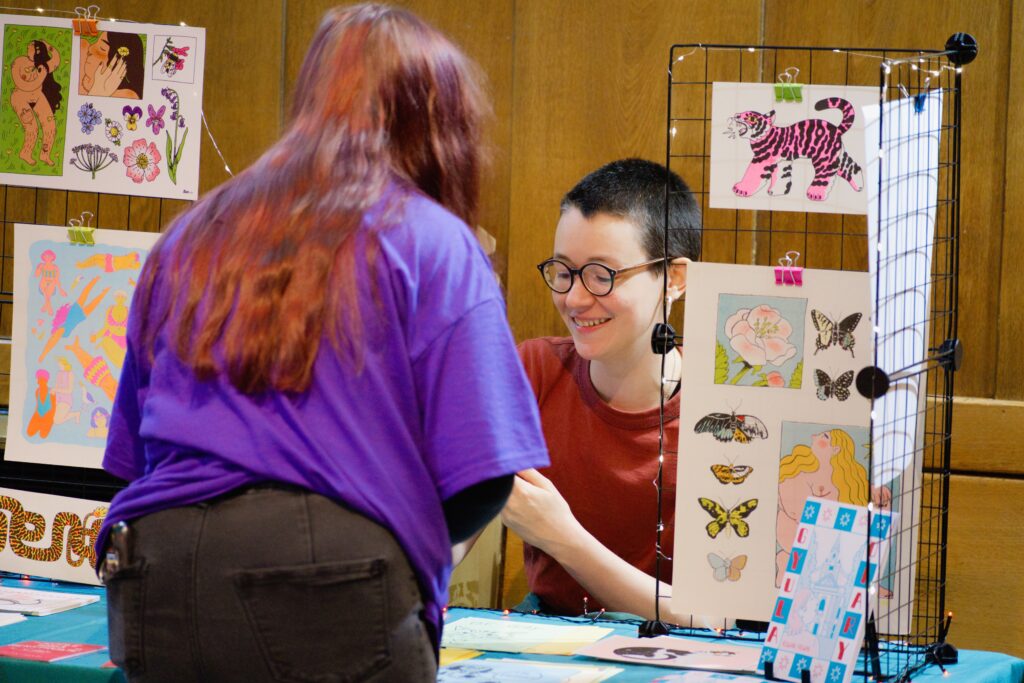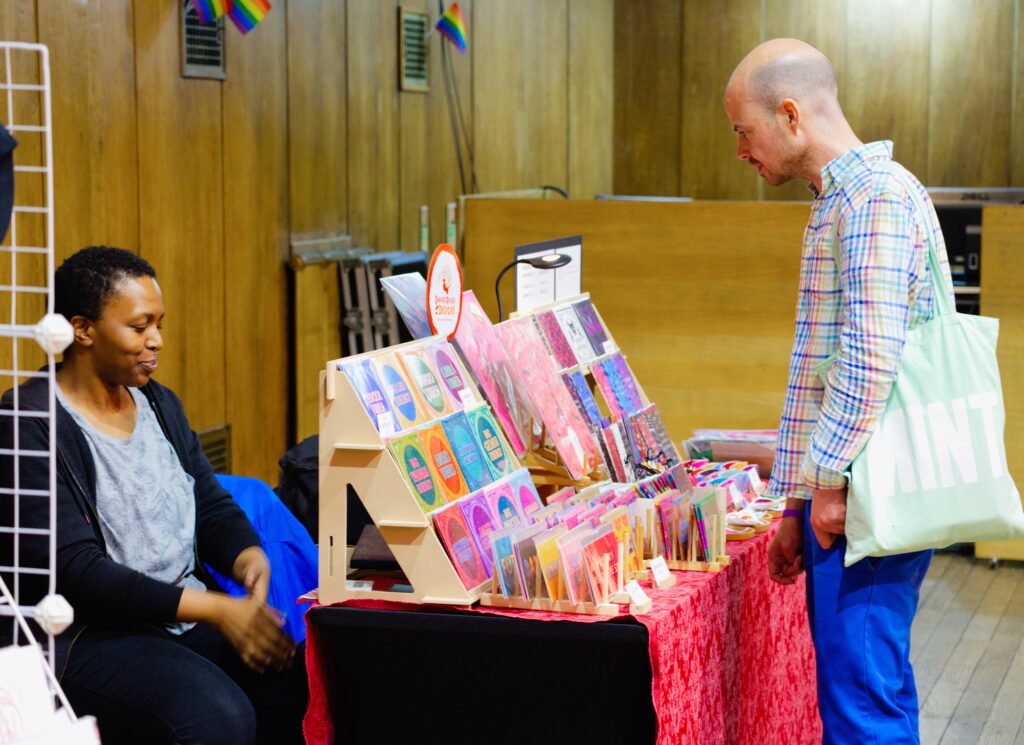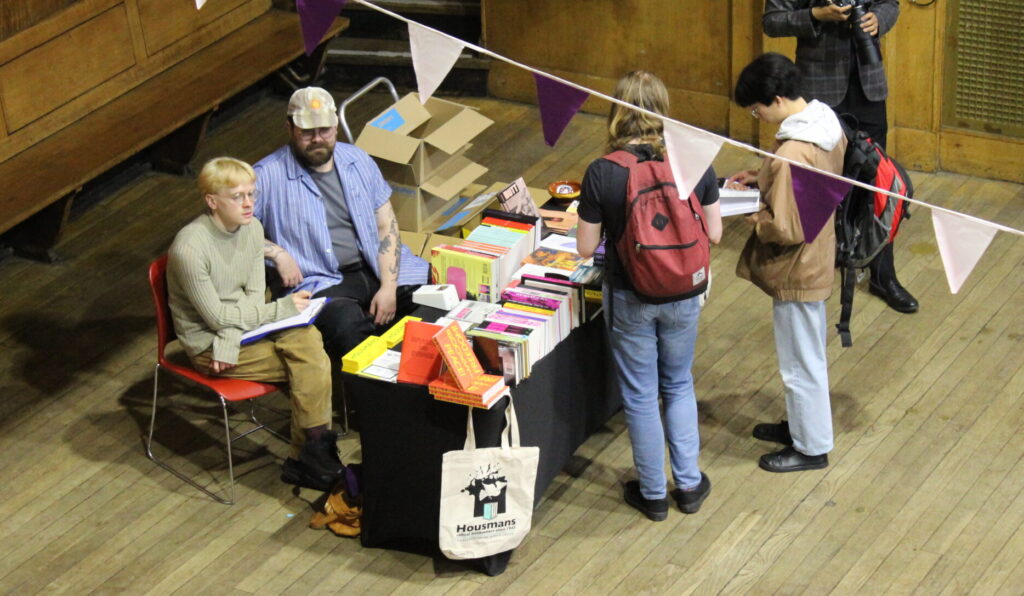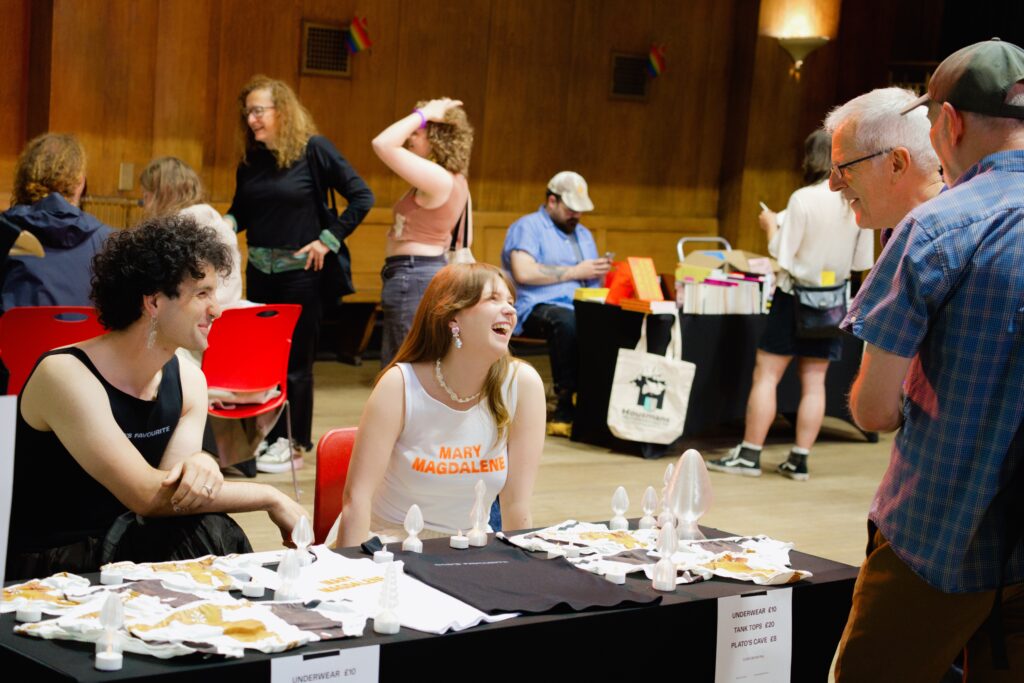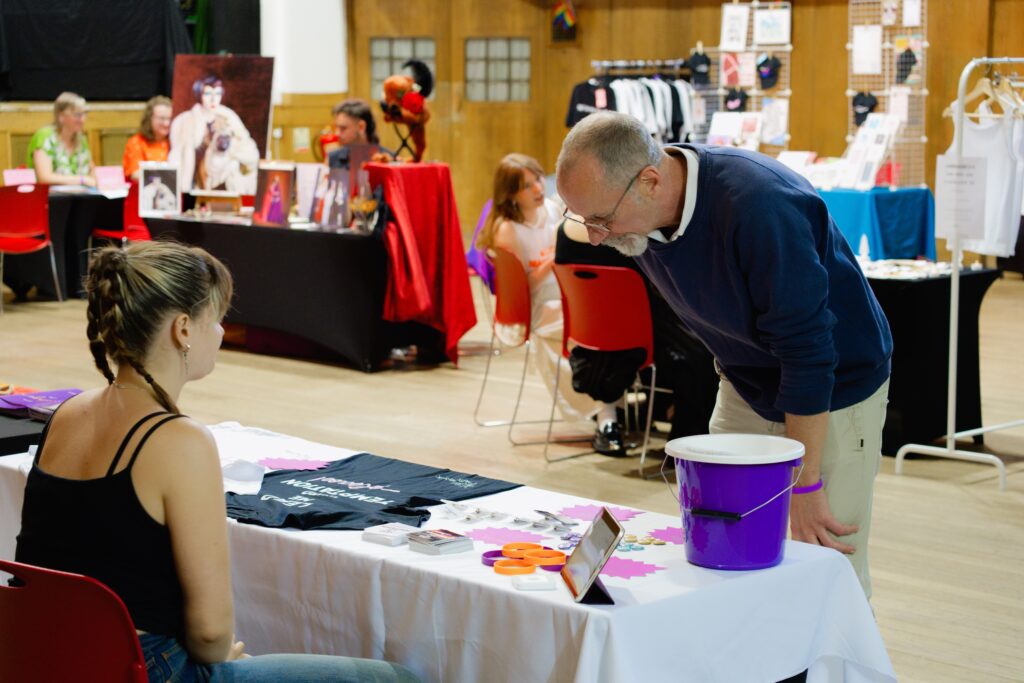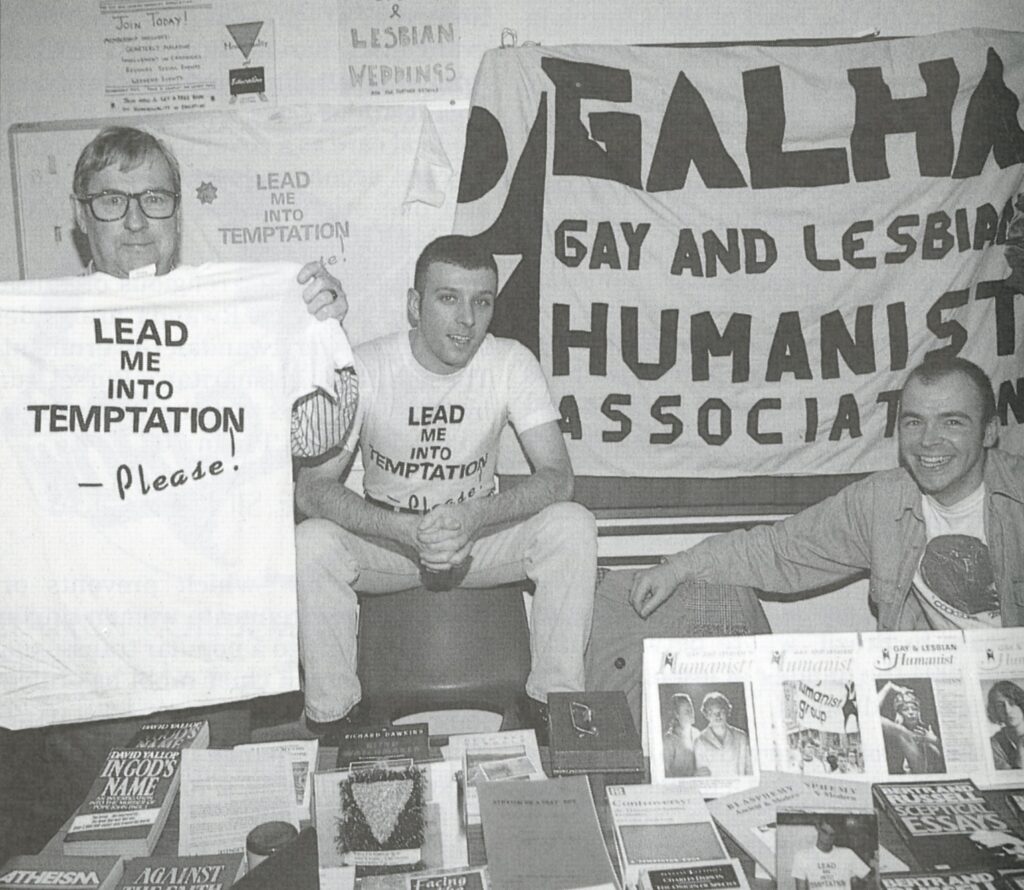
Fairs and temptation since the 1980s
A major highlight in the social calendar of LGBT Humanists (then known as the Gay and Lesbian Humanist Association) in the 1980s were their annual fairs at Conway Hall, produced jointly with the Campaign for Homosexual Equality. Attractions often included market stalls, games, a bar, and entertainments such as drag performances and live music. By the mid 1990s, the annual Winter Fair had morphed into a Winter Solstice party hosted solely by LGBT Humanists. Performance was always an important aspect of these events, such as the 1994 party culminating in Australian singer Michael Thomas impersonating Judy Garland, Liza Minnelli, and Ethel Merman.
From the early 1980s, LGBT Humanists produced merchandise with their ‘Lead Me Into Temptation — Please!’ slogan, which parodied the Lord’s Prayer. They started with badges and then expanded to t-shirts in 1994. Their other popular merchandise slogans included ‘Sodom Today — Tomorrow the World’, referencing the Biblical story of Sodom, from which ‘sodomy’ was derived (a term used for centuries in homophobic legislation to describe outlawed sexual acts including homosexuality).
